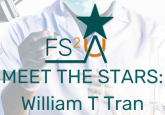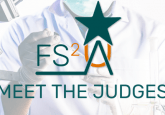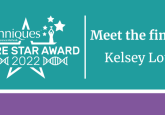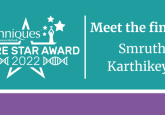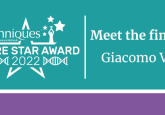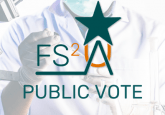Meet the stars: Andy Tay Kah Ping
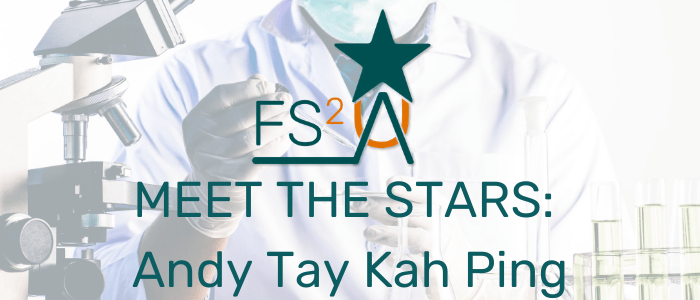
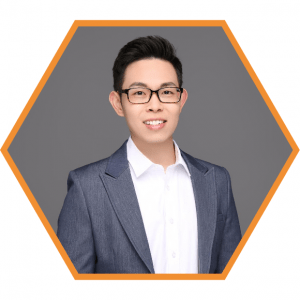 Meet the stars of the 2020 Future Science Future Star Award.
Meet the stars of the 2020 Future Science Future Star Award.
Andy Tay Kah Ping is a bioengineer. He is a finalist in the Future Science Future Star Award 2020, run by BioTechniques and Future Science OA. Here he discusses his career, as well as his aims for the future.
Please tell us about your career to date
I graduated with my PhD from the University of California, Los Angeles (USA) in 2017. My thesis, which was focused on the use of magnetic biomaterials for chronic pain modulation, won the Springer Theses Prize. Following which, I headed to Stanford University (CA, USA) for my postdoctoral training where I developed nano-structured devices for immune cell engineering. My research paper was chosen as the 2019 Most Influential Paper in the journal Advanced Therapeutics. I was then awarded the prestigious Brunel Fellowship for a short research stint in Imperial College London (UK). My lab at the National University of Singapore will be launched in early 2021.
What made you choose a career in your field?
I chose a career as a scientist because I am curious about the world around me and I hope to create a positive impact on human health through my research.
I remember that as a child, I was always asking my parents questions like, why are flamingos always standing on one leg? When I started school, many of my questions could be answered with science. However, when I was first exposed to research work, I realized that there are many more questions surrounding human biology and health that remain a mystery. At the same time, as humans live longer, the prevalence of chronic diseases like chronic pain and cancer is increasing. These diseases have detrimental impact on human health.
I am drawn towards science and research because I want to make use of my research and technology to improve human health. One research topic in my lab is to create technology that can more efficiently genetically engineer immune cells so that we can use them to fight cancer – which is currently the second most common cause of death worldwide.
What are the main highlights of your career so far?
As a PhD student, I engineered magnetic hydrogels that can potentially be used to modulate chronic pain, a prevalent disease with no cure. My work gathered significant media attention including highlights from more than 20 news media and an exclusive interview by Voice of America. I also received prestigious prizes internationally, including the Helmsley Fellowship, Springer Theses Prize, Toshihiko Tokizane Memorial Award and Forbes 30 Under 30 (US/Canada, Science).
As a postdoctoral scholar, I developed nano-structures for more efficient genetic engineering of immune cells for cancer immunotherapy and received highly competitive travel awards from the Society for Immunotherapy of Cancer (SITC) and NIBIT Foundation (Italy). I also represented Singapore in the 2018 Lindau Nobel Laureate Meeting and was recently chosen as the only Singaporean in the World Economic Forum Young Scientist Class of 2020.
What is the most difficult challenge you have encountered in your work and how did you overcome it?
The greatest challenge was knowing what ‘kind’ of scientists I want to become. I could spend all my energy on research and neglect communicating science to society. While this would benefit my professional achievements, I felt that it would be regrettable as science communications and mentoring add so much value to raising scientific literacy of society.
To be good in both research and science communication, I had to manage my time much more effectively to engage different audience in technical and laymen language. However, over the last few years, my research has taken off and I am now a recognized rising star in my field. Similarly, many of my science communication efforts, be it in writing, museum work and mentoring, have been very rewarding. For instance, I was chosen as a Creativity in Research Scholar by Stanford University to design a toy kit to explain cancer treatment to children suffering from cancer.
Which one publication of yours would you say best highlights your career to date?
The high expression levels of mechano-sensitive channels (MSCs) such as PIEZO are associated with poor tissue regeneration and chronic pain but besides drugs, there is no other way to modulate the expressions of MSCs. In Tay et al. (Advanced Materials, 2018, IF: 25.8), I described the invention of programmable 3D magnetic hydrogels coupled with remote field magneto-mechanical modulation to reduce cellular expression of MSCs to promote tissue regeneration and possibly, pain modulation. This is an entirely novel mechanism i.e. mechano-ceuticals (a play on word: pharma-ceuticals) where biomechanics can be exploited for medicine. My work has attracted significant media and commercial attention with an Altmetric Score > 100 (top 5% of all research output), an interview with Voice of America. With this idea, I was also named a Forbes 30 Under 30.
What are your main aims for the future?
My goal is to engineer technologies to realize the potential of immuno-medicine to treat cancer which is expected to affect one in four people over their lifetime globally. My research provides innovative solutions (Tay & Melosh, Advanced Therapeutics, 2019) to unmet technological needs in cell-and immuno-therapy. I am also creatively pushing boundaries in immuno-medicine beyond the cell level by inventing tools to interface with immunity at the tissue (Tay et al., Advanced Materials, 2018) and system levels (Tay et al., Advanced Functional Materials, 2017). My innovations will enhance the impact of immuno-medicine, a promising treatment for prevalent disease like cancer and diabetes that affect an increasing number of people globally and particularly in may developed countries which have rapidly aging populations.
I also hope that through my science communication efforts I can continue to represent the under-served communities and make science a more diverse and inclusive community.
Where do you hope to see yourself in 5 years?
In 5 years, I am confident that my research will have led to at least one Phase I clinical trial where my technology will be used to genetically engineer immune cells for cancer immunotherapy. I am also optimistic that my students will enjoy their research journeys in my lab and advance to next stages of their careers with stellar achievements, ready to impact human health. As a believer of collaboration, I also see myself establishing research collaborations with colleagues all around the world so that we can join forces and combine our unique expertise to fight cancer together.
In terms of public engagement, I hope to provide students from low-income families like myself an exposure to research work and to excite them about having a career in STEM. At the same time, I hope to better engage society in science, and some ideas include organizing workshops to train students so that I can amplify the influence of inclusive and evidence-based science communications.
Why do you feel you deserve this award?
Based on my research achievements and commitment to science volunteering, I believe I am a competitive candidate for this award. Despite being an early-career researcher, I have more than 32 publications in top journals. I have also received many prestigious prizes from organizations, such as the World Economic Forum, demonstrating my scientific accomplishments.
However, perhaps different from many scientists, I grew up as a first-generation college graduate and defied odds to become a Professor. This experience made me deeply understand the importance of giving back to the society that has made my current achievements possible. This realization has motivated me to contribute to science communications and mentoring of under-served and -represented communities, and I hope that through my efforts, there will be more talented people drawn to STEM to help our society push boundaries in human health research
Nominated by: Dr. Lim Chwee Teck (National University of Singapore)
Twitter: @andytkp2017
LinkedIn: Andy Kah Ping Tay
